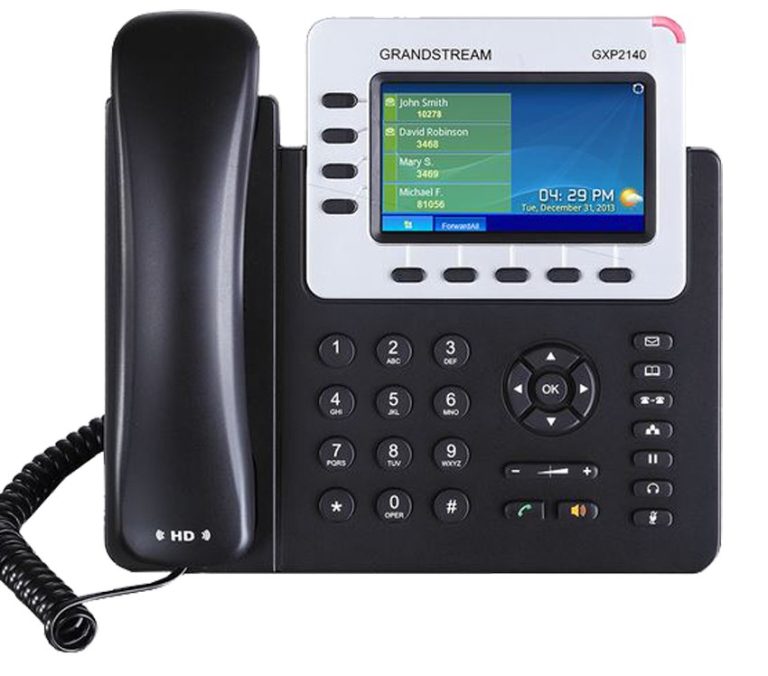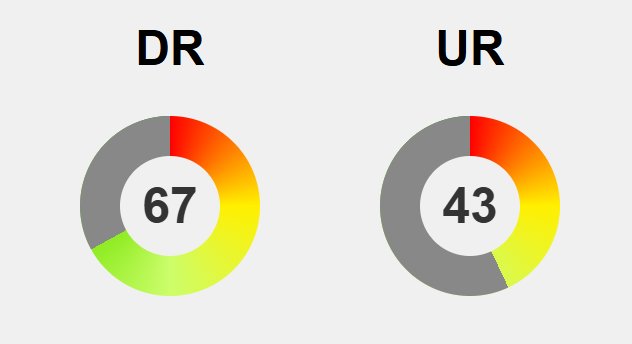Choosing the right business accountant isn’t just a routine step—it’s a strategic move that can transform your financial future. Many entrepreneurs underestimate how a trusted partner, with industry-specific expertise and proactive support, can uncover savings, prevent costly mistakes, and guide growth. But how do you find someone who truly aligns with your needs amid a sea of options? This article reveals the secrets to selecting an accountant who isn’t just a number cruncher but a vital extension of your team—offering clarity, confidence, and long-term stability. From evaluating credentials and communication styles to fostering open collaboration, discover how to overcome common challenges and build a partnership that fuels your success. Is it possible that the right accountant could be your most valuable business asset? Absolutely—if you know what to look for and how to engage them effectively, your financial foundation could be the key to unlocking unprecedented growth.
Why Choosing the Right Business Accountant Can Shape Your Future
Choosing the right business accountant can be a pivotal decision that shapes your company’s future. Many entrepreneurs view accountants as just tax preparers or expense trackers, but the best ones become trusted partners who help steer your financial course. They’re the people who understand your business’s unique challenges and opportunities, offering guidance that goes well beyond balancing books.
A good accountant does more than handle compliance—they analyze your financial data to identify growth opportunities, manage cash flow, and prevent costly mistakes. Partnering with someone who truly gets your industry allows you to make smarter decisions and plan confidently for expansion. This relationship can act as a backbone for your business, providing clarity amid the complexities of financial management.
The importance of selecting the right accountant often gets overlooked. Many business owners underestimate how a strong financial partner can influence their success, stability, and peace of mind. An effective accountant becomes an extension of your team, invested in your long-term goals and committed to your growth. Their insights can help you navigate regulatory hurdles and optimize your resources.
This article will explore what qualities to look for—credentials, experience, communication style, and availability—that set a great accountant apart. Making an informed choice now can prevent headaches down the line and set the stage for sustainable success. Finding the right partner isn’t just about number-crunching; it’s about aligning with someone who genuinely supports your vision and understands your needs.
Unlocking the Power of Business Accounting to Drive Smarter Decisions
Understanding business accounting means more than just tracking expenses or preparing tax returns. It’s about creating a clear snapshot of your company’s financial health to support smarter decision-making. Professional accountants don’t just record transactions—they analyze the data to identify trends, assess profitability, and uncover opportunities for growth. Their insights turn complex numbers into straightforward reports, like cash flow forecasts and profit margins, that help you plan ahead with confidence.
Knowing the difference between bookkeepers, accountants, and CPAs is key. Bookkeepers handle daily transactions, keeping your records organized. Accountants go deeper, preparing financial statements, analyzing data, and advising on tax strategies. CPAs, as licensed professionals, often handle audits and strategic planning. Understanding these roles helps you find support tailored to your specific needs, whether it’s routine bookkeeping or comprehensive financial advice.
A good business accountant provides essential services that keep your finances compliant and stable. They help with tax planning—finding deductions and credits to lower your liabilities—and manage cash flow effectively. They also assist with budgeting and regulatory compliance, forming a partnership that supports your growth rather than just maintaining your current stability. Their expertise ensures your financial foundation is solid and ready for future challenges.
As accounting practices have evolved—from manual ledgers to advanced software—staying current is vital. Today’s professionals adhere to rigorous standards like GAAP and IFRS, and leverage technology to deliver accurate, transparent results. This ongoing education and adherence to standards give you confidence that your financial data is reliable, helping you avoid costly mistakes and stay compliant with regulations.
When your financial data is accurate and well-analyzed, you can identify areas for improvement, plan for expansion, and steer clear of pitfalls. A trusted accountant acts as a strategic partner, guiding you through complex landscapes with clarity. Their support turns your accounting from a routine task into a competitive advantage, empowering you to make informed choices that fuel your business’s growth.
Ultimately, understanding business accounting empowers you to see beyond the numbers. It transforms financial data into actionable insights, giving you the confidence to pursue opportunities and navigate challenges. A skilled accountant becomes an extension of your team, helping you build a resilient, successful business from the ground up.
How to Identify and Select a Trusted Financial Partner for Your Business
Choosing the right business accountant means finding someone who truly understands your needs and can serve as a reliable partner in your growth. Look for professionals with experience in your industry, as familiarity with your sector helps them grasp your unique challenges and offer tailored advice. Verify credentials like CPA or CMA to ensure they meet industry standards and stay current with evolving regulations. Their industry-specific expertise can make a real difference in the support they provide.
Communication is essential. Your accountant should be approachable, able to explain complex financial concepts clearly, and transparent about their services, fees, and processes. Establishing this clarity early builds trust and sets expectations. Don’t hesitate to ask for references or examples of how they’ve helped similar businesses succeed. Responsiveness and proactive engagement demonstrate their commitment to your long-term success.
Reliability and availability matter just as much as expertise. A dependable accountant responds promptly and schedules regular check-ins—monthly or quarterly—to keep your finances aligned with your goals. Their proactive approach allows you to address issues early and seize opportunities before they slip away. Ensure they’ve worked with companies of your size or in your growth phase, so their insights are relevant and practical.
Evaluate their fee structure upfront—whether hourly, fixed, or retainer—and weigh it against the value they offer. The goal isn’t necessarily the lowest cost but finding someone who combines experience, industry knowledge, and a genuine interest in your success. Trust your instincts during interviews; a good accountant should make you feel confident, supported, and understood. Making this choice wisely sets the foundation for a partnership that can truly propel your business forward.
By taking these steps, you can build a strong foundation for a productive relationship with your financial partner. When searching for more resources on this topic, consider exploring how to choose a trusted financial advisor, which offers valuable insights into making informed decisions that benefit your business growth. For detailed guidance, visit how to choose a trusted financial advisor.
Practical Strategies for Building a Strong Partnership with Your Accountant
Building a strong working relationship with your accountant starts with clear and honest communication. Be upfront about your business goals, financial concerns, and the support you need. This transparency lays the groundwork for a partnership based on trust and mutual understanding. Regular check-ins—whether monthly or quarterly—keep both of you aligned and allow for timely adjustments as your business evolves. Sharing organized, up-to-date financial documents makes their job easier and ensures they can provide accurate, actionable advice.
Honest feedback is just as vital. If something isn’t working or if you need clarification, speak up. Open dialogue helps your accountant understand your needs more precisely and makes it easier to tailor their support. Think of your relationship as a collaboration; treating it that way encourages proactive support and shared success. When you communicate clearly and listen actively, you foster a partnership that’s responsive and productive.
Preparation goes a long way in making your meetings effective. Gather relevant reports, invoices, and bank statements before each appointment. This shows your commitment and enables your accountant to analyze your financial data efficiently. Asking questions about their recommendations not only deepens your understanding but also helps you implement their suggestions with confidence. Being organized and engaged demonstrates your seriousness about your business’s financial health.
Maintaining ongoing contact is key to building trust. Reach out regularly for updates or advice, especially as your business faces new challenges or growth opportunities. Periodic reviews of your working relationship allow both of you to assess whether support remains aligned with your goals. If necessary, adjust your approach or expectations to keep the partnership strong and relevant.
By fostering open communication and staying organized, you turn your accountant into a true partner who actively supports your growth. This collaborative approach streamlines your financial management and positions you to seize opportunities with confidence, knowing your financial foundation is solid.
The True Value and Financial Impact of Selecting the Perfect Accountant
Choosing the right accountant can have a substantial impact on your business’s financial health and growth prospects. While their fees might seem like an expense at first glance, the real value they bring often far exceeds the initial cost. A skilled professional can uncover tax-saving opportunities, help you avoid costly mistakes, and streamline your financial processes, resulting in savings and increased efficiency over time.
The true benefit lies in how they optimize your finances. An experienced accountant can identify deductions and credits you might overlook, saving your business thousands each year. They also ensure compliance with complex regulations, helping you avoid penalties that could be financially devastating. These proactive measures protect your bottom line and keep your business secure.
Beyond immediate savings, a trusted accountant becomes a strategic partner who influences your long-term success. Their guidance on cash flow management, budgeting, and financial planning can help you make smarter decisions that foster growth. This support enables you to navigate expansion, investments, or restructuring with confidence, knowing your finances are in capable hands.
Investing in quality accounting services often pays for itself through improved cash flow and smarter planning. The peace of mind that comes from knowing your financial foundation is solid allows you to focus on core operations and growth strategies. This confidence can translate into more opportunities and a stronger competitive position.
Choosing an accountant based solely on price is tempting but risky. Low-cost options may lack the expertise or proactive support you need. The most valuable accountants offer expertise, industry insight, and ongoing support that help you avoid pitfalls and capitalize on opportunities. Their guidance transforms routine bookkeeping into a growth engine.
The financial impact of selecting the right accountant isn’t just about immediate savings; it’s about building a foundation for sustained success. Their advice, accuracy, and strategic insight can lead to better decision-making, increased profitability, and long-term stability. It’s an investment in your business’s future, not just an expense.
A good accountant’s support can prevent costly errors, optimize your tax position, and improve your cash flow. These benefits directly contribute to your ability to reinvest in your business and pursue growth opportunities. Over time, their expertise helps you stay ahead of financial challenges and seize new markets.
In essence, partnering with the right accountant turns financial management from a necessary burden into a strategic advantage. Their value goes beyond numbers—they become an extension of your team, dedicated to helping your business thrive. The right choice pays dividends in stability, growth, and peace of mind, making it one of the smartest decisions you can make for your business’s future.
Effective Steps to Engage and Collaborate with Your Chosen Accountant
To work effectively with your accountant, start by setting clear expectations from the beginning. Clearly communicate your business goals, financial concerns, and the type of support you need. This transparency builds a foundation of trust and ensures both of you are aligned on priorities. Establish a routine for regular check-ins—monthly or quarterly—to review progress, discuss challenges, and adjust plans as your business evolves. Consistent communication keeps your financial picture current and helps prevent issues from escalating.
Organizing your financial documents is crucial. Keep records like invoices, bank statements, and receipts tidy and accessible. Providing organized data allows your accountant to analyze your financial health accurately and quickly identify opportunities or red flags. When your records are in order, they can offer more precise advice, saving you time and reducing costly mistakes.
Be proactive in sharing updates and feedback. If something isn’t working or if you have questions about their recommendations, speak up. Open dialogue ensures your accountant understands your needs and can tailor their support accordingly. Treat the relationship as a partnership—your input helps them serve you better and fosters a collaborative environment centered on your success.
Preparation before meetings makes a significant difference. Gather relevant reports, documents, and questions beforehand. This demonstrates your commitment and enables your accountant to provide targeted, actionable insights. Asking clarifying questions during discussions helps you understand their advice and implement recommendations with confidence.
Maintain ongoing contact beyond scheduled meetings. Reach out when you need advice or updates, especially as your business grows or faces new challenges. Regular communication builds trust and keeps your financial strategies aligned with your current goals. Periodically reassess your working relationship to ensure it continues to meet your needs effectively.
Treat your accountant as an active extension of your team. Engage honestly, share pertinent information, and listen to their guidance. This collaborative approach maximizes the value of their expertise, streamlines your financial management, and positions your business for growth. The more engaged and organized you are, the more confident you’ll feel in making informed decisions that drive your success.
Overcoming Common Obstacles in Finding the Ideal Business Accountant
Finding the right accountant can be challenging, especially with so many options and variables to consider. One common obstacle is ensuring they have enough industry-specific experience. An accountant unfamiliar with your sector might miss critical details or suggest generic solutions that don’t align with your business needs. Asking for examples of their work with similar companies and verifying their credentials like CPA or CMA can help you gauge their expertise upfront.
Relying solely on online reviews or referrals can be misleading. Conducting thorough background checks and asking pointed questions about their experience ensures you’re not caught off guard later. Sometimes, a candidate may seem perfect on paper but be unresponsive or unavailable when you need them most. Availability and quick responsiveness are crucial traits for a trusted partner, so don’t overlook these qualities during your search.
Cost is another tricky factor. The cheapest options might lack the proactive support or specialized knowledge you require, while higher fees don’t always guarantee better service. Striking a balance involves evaluating what services are included and whether they match your growth stage. Remember, a good accountant should be a proactive advisor, not just someone reactive to problems.
Miscommunication can derail even the best relationships. Clarify scope, fees, and expectations from the outset to prevent misunderstandings. Asking detailed questions about their approach and ongoing support sets a solid foundation for collaboration. If issues do arise, address them promptly and directly — open dialogue prevents small frustrations from turning into major setbacks.
Building trust takes time and effort. Verify credentials, seek references, and ensure their familiarity with your business size and industry. This diligence reduces the risk of mismatches and helps establish a partnership rooted in mutual understanding. Trust your instincts during interviews; a supportive, confident accountant can become a true asset.
Even after making a choice, challenges may emerge. If expectations aren’t being met, communicate openly. Discuss concerns directly, and if problems persist, consider involving professional associations or mediators. Staying proactive preserves a healthy, productive relationship and keeps your financial management on track.
Approaching your search with a strategic mindset makes all the difference. Use industry resources, ask the right questions, and prioritize compatibility over cost alone. This careful process ensures you find an accountant who not only fits your budget but truly supports your business’s long-term success.


